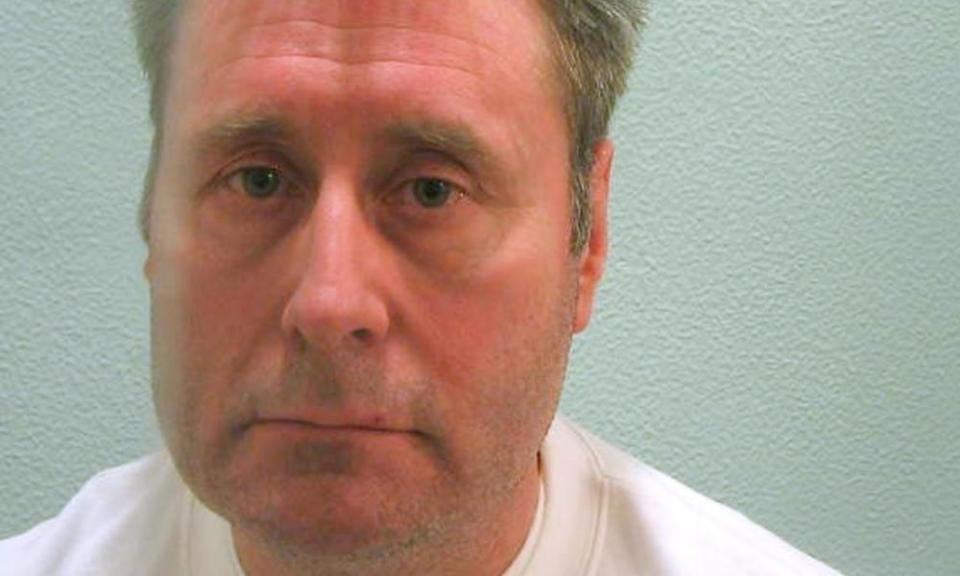John Worboys release: government will not pursue judicial review

The justice secretary, David Gauke, will not pursue a judicial review to stop the release of the serial sex attacker John Worboys, he has told the House of Commons.
Gauke has been investigating the possibility of challenging the Parole Board’s decision to release the black-cab rapist Worboys, 60, after less than 10 years in prison.
The secretary of state commissioned legal advice last week on the plausibility and prospect of success of a judicial review.
On Friday, he said such a move was not feasible. Gauke told the Commons: “Having taken considered and expert legal advice I have decided that it would not be appropriate to proceed … I know this will disappoint victims in this case and members of this house given the crimes for which he has been convicted. I share those concerns.”
He said his decision did not preclude third parties including the victims making their own legal challenge to the Parole Board’s decision. He reassured victims that Worboys would not be released until victims had made representations about his licence conditions.

“Contacts have taken place with victims this week and further meetings about his release will take place next week,” he said. “Let me be absolutely clear: Worboys will not be released until their representations have been properly consulted and until his licence conditions are in place.”
Two of Worboys’ victims are already pursuing their own judicial review. They are crowdfunding their legal action and have received more than £17,000 to date.
“The generosity of people and the kind comments they have made have really touched me,” said one of the victims pursuing the review.
Worboys was jailed indefinitely in 2009, with a minimum term of eight years, for drugging and sexually assaulting female passengers. The former black-cab driver was convicted of 19 offences against 12 victims but police have linked him to more than 100 complaints in total.
Gauke told the Commons: “The victims of these horrific crimes have suffered a significant amount of trauma and the prospect of his release is deeply concerning to them and to many members of this house and the wider public. I believe we owed it to these victims to pursue all the options available to me.”
Gauke said he could not reveal the detailed reasons for the legal advice not to pursue a judicial review targeting two areas of the decision. The first was whether any parole board could reasonably have taken such a decision; the second was whether there were any significant failings in the procedure.
Gauke said: “The test for deciding if the [Parole Board] decision is unreasonable is not simply that the decision-maker could have made an alternative decision, but that no reasonable person would have come to the same conclusion.”
He said that to challenge the decision on procedural grounds it would be necessary to show that failure to follow process had a material impact on the decision.
The justice secretary said he shared the concerns of victims, the house and the wider public about the case. He wanted to give the victims clarity on where the government stood.
Gauke said he fully supported the right of any third party to challenge the Parole Board decision. “The approach I am taking does not mean that others are precluded from taking action.”
Worboys targeted women coming home late at night, picking them up in his black cab and drugging them with a heavy sedative crumbled into champagne before carrying out his attacks.
In the absence of any further legal challenge he is likely to be released from Wakefield high security prison in the next two weeks.
Richard Scorer, a specialist abuse lawyer at Slater and Gordon, which represented 11 of Worboys’ victims, said: “Although our clients are disappointed that the government has chosen not to participate in a judicial review of this decision, the victim judicial review is going forward and we urge everyone to support it and support the crowdfunding efforts.
“It is crucial that the decision to release this manipulative, calculating and dangerous man can be considered by the courts as soon as possible. It is also imperative that the failure to prosecute more cases against Worboys is re-examined.”
Harriet Wistrich, a lawyer at the firm Birnberg Peirce, who is representing the two victims in their bid to take a judicial review, said: “In the absence of any unexpected and compelling response from the Parole Board to our pre action correspondence, we intend to launch judicial review proceedings against the Parole Board next week.”
The women, who are known as DSD and NVD, were attacked by Worboys in 2003 and 2007.
They made a successful human rights challenge against the Metropolitan Police in which they argued the systemic police failings in investigating Worboys breached their human rights. The Met, supported by the Home Secretary, appealed the decision and lost in the Appeal Court. They have taken the case to the Supreme Court and a decision is due in the near future.
Why is John Worboys being released?
How does the Parole Board take decisions over the release of prisoners?
Why has the government decided against pursuing a judicial review of the decision?

 Yahoo News
Yahoo News 